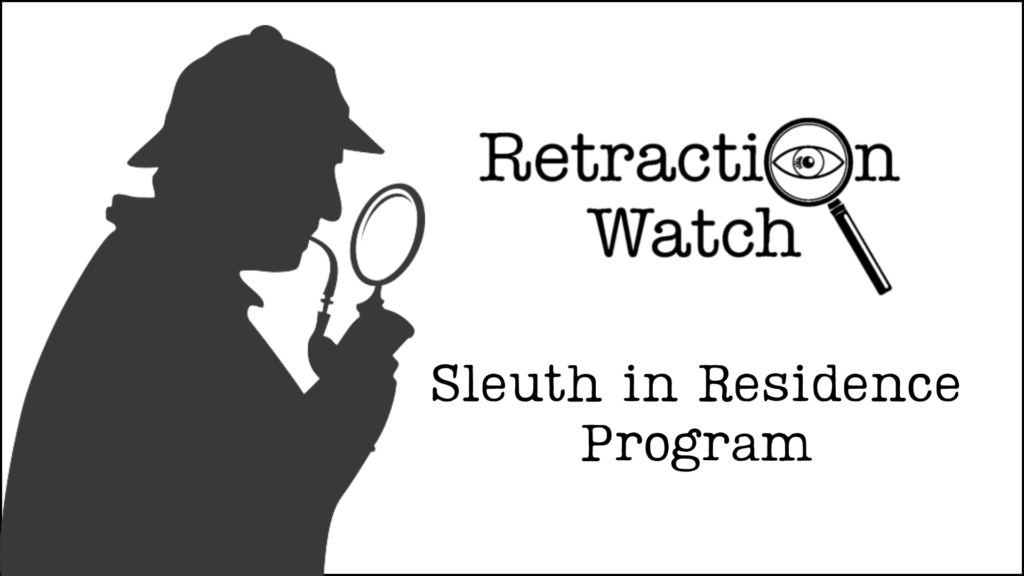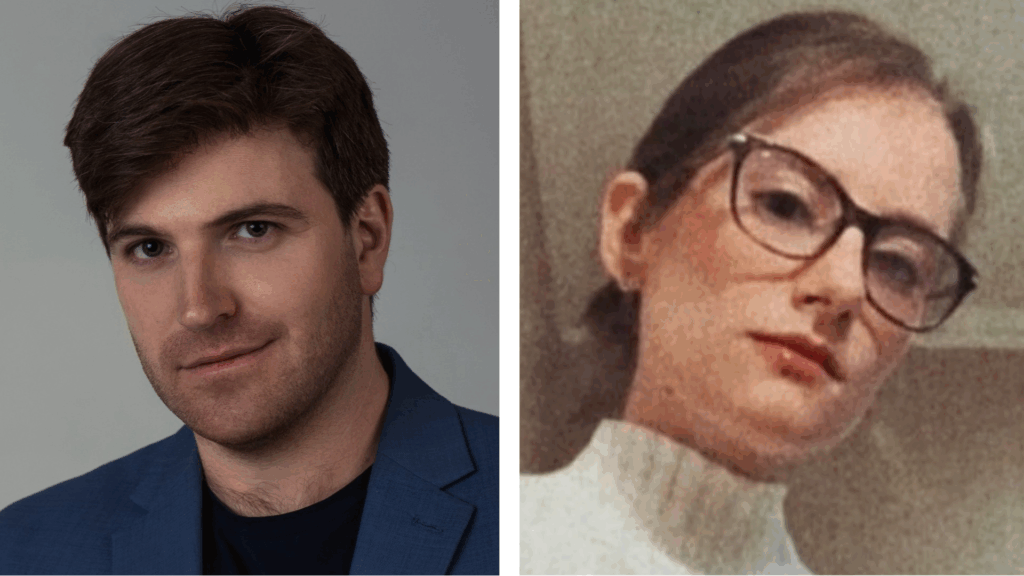We are thrilled to announce that David Robert Grimes and Mariana Ribeiro will join the Retraction Watch team as Sleuths in Residence starting June 1.
Earlier this year we announced the Sleuth in Residence Program, an opportunity for active sleuths to have a secure and paid position while working closely with our research team on specific projects, and with our journalism team to publish their findings. Our goal is to build capacity in this space to emphasize the value of compensating and protecting the critical work of sleuths.
We’re pleased to be able to bring on two Sleuths in Residence as part of this effort.
David Robert Grimes is a mathematical modeller, cancer scientist, broadcaster, and author. He is an expert in the public understanding of medical science, contributing to outlets including The Guardian, Scientific American, the New York Times, BBC, Financial Times, Irish Times, and more. David’s research focuses largely on research integrity, metascience, and public understanding. He was joint recipient of the 2014 Nature/Sense about Science John Maddox Prize and is a fellow of the Committee for Skeptical Inquiry. He is the author of Good Thinking: Why Flawed Logic Puts Us All at Risk and How Critical Thinking Can Save the World (The Experiment, 2021).
Mariana Ribeiro is currently a postdoctoral researcher at Brazil’s National Cancer Institute (INCA), where she leads the development of the Institute’s scientific integrity framework, focusing on governance and educational initiatives. She has almost 10 years of experience in retraction studies. She holds a degree in biomedical sciences from the Federal University of Rio de Janeiro (UFRJ) in Brazil, and a Ph.D. in science education from the Institute of Medical Biochemistry Leopoldo de Meis (IBqM/UFRJ). Her M.Sc. and Ph.D. research focused on retractions, science communication and policy, supported by datasets collected from the Retraction Watch and Retraction Database. Her interests include the relationship between retractions and the reward system of science, as well as new models of scholarly communication, the relationship between science and the public, and the social responsibility of scientists.
“The Sleuths in Residence program brings a longtime goal into reality for us,” said Ivan Oransky, Retraction Watch cofounder and executive director of the Center for Scientific Integrity, the parent organization for Retraction Watch. “We have long relied on the important work of sleuths in our reporting to hold researchers, editors, journals and publishers accountable for maintaining the integrity of scientific research. Sleuths are typically unpaid and work at great personal risk. We are proud to bring David and Mariana on board as our first Sleuths in Residence.”
The Sleuths in Residence are one-year positions. The program is funded by a generous donation from George Tidmarsh.
Like Retraction Watch? You can make a tax-deductible contribution to support our work, follow us on X or Bluesky, like us on Facebook, follow us on LinkedIn, add us to your RSS reader, or subscribe to our daily digest. If you find a retraction that’s not in our database, you can let us know here. For comments or feedback, email us at [email protected].


It’s great that there will be a Brazilian in this sleuth program. Recent cases emerged in the country that might be of Mariana’s interest:
https://forbetterscience.com/2025/03/21/schneider-shorts-21-03-2025-the-mental-impact-science-integrity-took/
https://forbetterscience.com/2023/11/15/julius-caesar-daria-brazilian-tango-in-stanford/
https://pubpeer.com/search?q=fapesp
https://pubpeer.com/search?q=cnpq
Congratulations to Mariana and David. I look forward to reading about their contributions to help maintain the integrity of science.
It’s great to have a sicentist from Brazil in Retraction Watch with good knowledge of that BIG country; domestic research, culture, native language and publications, science integrity situation, higher education system, etc.
Many scams in science (papermills, citation cartels, …) are run locally as well as internationally. Dr. Mariana Ribeiro can be so helpful to uncover local (dis)integrity issues with first-hand access to original resources invisible for outsiders like us.
It will be helpful to extend this model to other BIG (dis)integrity players in scientific research, like China and Iran.